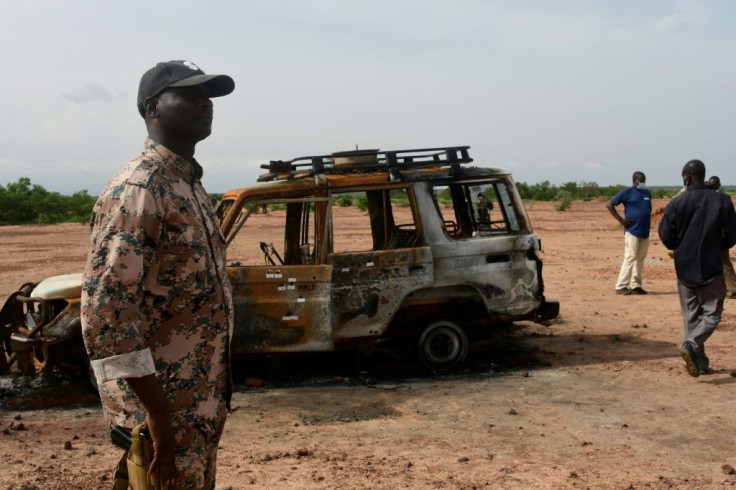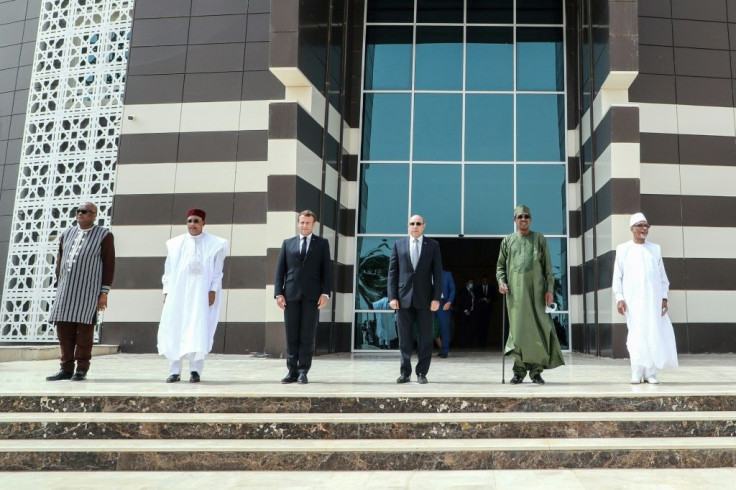Overshadowed By War, Aid Groups In The Sahel Soldier On
Aid groups in the Sahel have spent years in the shadows fighting the region's poverty and humanitarian crises, squeezed by a war that has monopolised the world's attention and made their lives even more difficult.
Since 2012 the global spotlight has been placed on a bloody conflict between government forces and the French-led Barkhane force on the one hand, and ruthless jihadist groups on the other.
But behind the graphic headlines, many problems go unnoticed.
One is the abject poverty of a region where nearly half the population lives with less than $1.25 (1.03 euros) per day, placing it at the very bottom of global development indices.
The hundreds of NGOs in the Sahel region, which comprises Burkina Faso, Chad, Mali, Mauritania and Niger, have developed an unparalleled expertise on the ground.
But, say some, their work is still seen as little more than a sideshow by governments, which will confer on Monday and Tuesday, along with France, at a summit in Chad.

"NGOs have something to say," said Frederic de Saint-Sernin, who runs humanitarian relief organisation Acted, but "nobody asks us for our point of view".
This, de Saint-Sernin said, is a mistake -- NGOs are experts in the Sahel's complexities thanks to their skills in implementing demanding programmes with a high proportion of local staff.
Politicians "ask the opinion of the military, diplomats and the police, but not of humanitarian organisations," he said.
The brutal conflict has made aid work even more difficult, said Pierre Mendiharat, deputy head of operations at Doctors Without Borders (MSF), especially outside government-controlled big cities.
"The situation in the countryside is extremely complex," he said. "It's a no-man's land."

Shifting power balances mean "we constantly have to negotiate our presence" with armed groups "who don't give a damn about neutrality and impartiality," said Mendiharat.
Last year the group suffered half a dozen attacks on its health centres in Sahel region countries, inclduding Mali, when "armed men came to take away wounded patients who were never seen again", said Mendiharat.
There have been countless other incidents targeting NGOs, ranging from simple theft to abduction and murder.
INSO, which specialises in humanitarian security, counted 54 incidents last year in Burkina Faso alone, including two killings and around 30 kidnappings -- mostly targeting local staff deployed outside the capitals.
"Unfortunately, it's the local populations that suffer the consequences of these attacks," said Mirella Hodeib, a Red Cross official in Mali.
The NGOs do however notch up their own untrumpeted victories, such as gaining access to a city cut off for weeks, or treating patients for several consecutive days without violent disturbances.
Despite everything, the work continues.
Alliance Sahel, a platform grouping 13 countries and lenders, has launched more than 800 projects since 2017, leading to vaccinations for over three million children, access to electricity for 550,000 people and drinking water for 5.6 million.
As recently as five years ago, the Sahel region failed to attract any partners for project financing at all, said Jean-Bertrand Mothes at French development agency AFD.
"But today we have a strong institutional network in Bamako, Ouagadougou or Niamey, mostly thanks to development banks," he said.
But these efforts, observers say, are little more than a drop in the ocean until governments manage to secure their territories, allowing NGOs to work in safety with the populations in need.
© Copyright AFP 2024. All rights reserved.





















